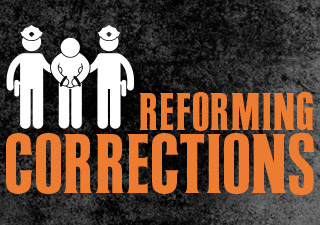Media
How YOU Benefit if Lawmakers Act on Corrections
 Correcting the commonwealth’s criminal justice system is urgent. This is why Gov. Tom Corbett made it clear that he wants to see reform legislation on his desk by June 30. We couldn’t agree more with the Governor.
Correcting the commonwealth’s criminal justice system is urgent. This is why Gov. Tom Corbett made it clear that he wants to see reform legislation on his desk by June 30. We couldn’t agree more with the Governor.
The ailing corrections system can do better for communities, taxpayers and offenders. Here’s a look at how it misses the mark:
- Communities: Nearly 45 percent of Pennsylvania parolees released into communities return to prison within three years, making for a “corrections” system that simply isn’t correcting.
- Taxpayers: The breakdown in our corrections system caused the prison population to skyrocket, demanding more state prisons, staff and tax dollars. This unsustainable growth in corrections spending is part of the four-alarm fire that threatens Pennsylvania’s fiscal house.
- Offenders: Kyle was kept incarcerated, after being granted parole, an extra 100 days because he couldn’t pay a $13.70 fine. This prevented him from rejoining his 4-year old daughter and the workforce, plus housing Kyle this extra time cost taxpayers more than 100 times the amount of the fine.
State corrections spending is unsustainable and fails to deliver acceptable results. Corrections Sec. John Wetzel is leading the charge for meaningful reform by not seeking an increased budget for the first time in a decade. Flat funding is possible only because the Department’s budget includes $2.8 million in savings expected from legislative changes.
The Justice Reinvestment Initiative (JRI) workgroup has thoroughly researched the state’s criminal justice system, vetted and proposed Pennsylvania-specific data-driven solutions. You can find a summary of the recommendations here.
The JRI recommendations could be introduced in a new bill introduced or amended into SB 100, which addresses some of the same issues and currently sits in the House Judicial Committee. With few session days left before the budget deadline, legislators must act quickly to meet Gov. Corbett’s important deadline.
Passing the JRI reforms along with SB 100 means you would benefit by living in safer communities, where more offenders are rehabilitated to become productive members of society. Corrections reform also means less of your hard-earned income would be taken away in taxes, and the dollars you already contribute to the corrections system could have more impact.
States such as New York and Texas have embraced similar policy changes, significantly reducing both their crime and imprisonment rates over the past decade. These states and others demonstrate that corrections reform can improve public safety while saving tax dollars.